Brevity and Brexity:
A Brief Look at English
History
Written by Rick Archer
rick@ssqq.com
Last Update: February 2017
|
Rick Archer's Note:
Due to my
2017 New Year's Resolution to become better known for my
Brevity, the following is an extremely brief
six chapter article about Merrye
Old England... or, as I prefer to say... the Texas Renaissance Festival on the other
side of the Pond.
Thanks to
Marla's upcoming 2017 cruise to
the British Isles, I decided to learn more about my June
destination.
Last October, Marla and I
visited Europe on our wonderful Greek Isles cruise.
During
our stay, we learned that Continental Europe is so mad at
England over Brexit, they don't want to have anything to do
with England anymore.
In their minds, England doesn't
belong in Europe. Go jump in the Pond.
|
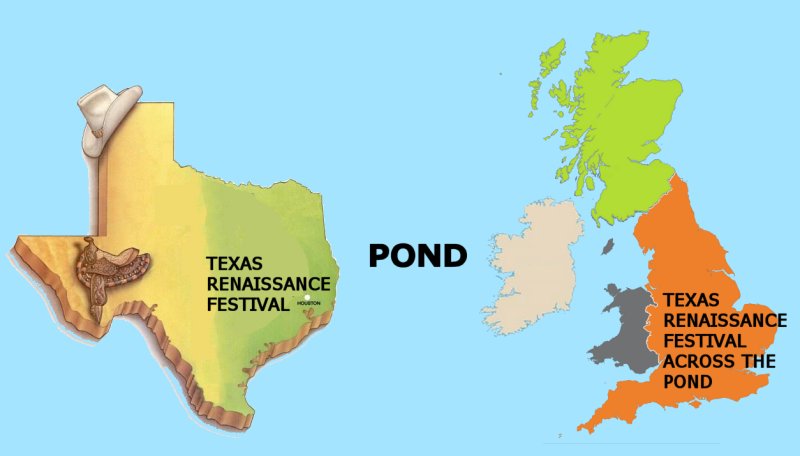 |
Ireland and Scotland don't
want England anymore either. They never liked England to
begin with and they still don't. Both countries wish
England would go away and leave them alone for good. Do you
blame them? Of course not!
Keep in mind that Ireland
and Scotland both voted to stay in the European Union.
Ireland and Scotland hold England responsible for the Brexit
Fiasco. Plain and simple, Brexit was England's fault
entirely.
Unlike Donald Trump who
wants to make America Great again, Ireland and Scotland
would prefer to take the 'Great' out of Great Britain
and tell England where to put it. I guess Scotland and
Ireland aren't feeling very Greatful anymore.
Understandably, England is
feeling lonely and isolated. She needs a friend. As always
whenever England is in trouble, the erstwhile Mother of
America begins to look longingly in the direction of her
former Colonies in North America. Both the United States
and Canada have responded with open arms, but the USA has
been the more enthusiastic of the two. And why is that?
Donald Trump.
Donald Trump wants to take
Great from Great Britain and bring it over here to help make
America Great again. That has been part of his plan all
along. I am completely serious... feel free to tell this to
any news channel and I have no doubt they will accept it as
fact.
| |
I may be a hermit
these days, but I
still know stuff. For one thing, I
know that Texas is really big. It is three
times bigger than the United Kingdom.
However, in the interests of
humility, size isn't everything. For example,
Great Britain once ruled the world and Texas was
once controlled by Mexico. Some say it still
is. Build the Wall.
Speaking of Donald Trump, I am privy to inside reports that Donald... no stranger himself to Brexit-style elections...
has invited England to forget about Europe and consider
becoming part of North America instead.
England is said to
be very tempted, especially after Trump promised to unite
the countries with a series of floating Trans-Atlantic golf
courses known as 'Putting on the Pond.' No sand
traps, but I hear the water traps will be very deep.
This is pure synchronicity.
By amazing coincidence, my dear wife Mystic Marla predicted
closer ties between America and England when she decided to
schedule her 2017 British Isles cruise. Although I have
never visited England, this place is close to my heart. My
family roots on both sides are about as English as they
come. I am part Welsh and mostly English.
I have a question. How many
of you know where 'America' got its name?
Believe it or not, the name
can be traced back to Amerigo Vespucci, an Italian mapmaker
and navigator who followed in the footsteps of Columbus.
After drawing some of the early maps of the New World, his
name became associated with the two continents.
|
 |
| |
Sad to say, even though I am
English from top to bottom by heritage, I confess I do not
know much about English history. Curious, I decided to
start by figuring out where its name came from.
Was 'Eng-land' named
for some guy named Eng? Alas, I was disappointed. There
was no one named Eng.
The 'Britons' were to
the island as North America's Indians were to the Spanish,
French, and English. The Britons were the first occupants
of 'Britony' and 'Brittany'. The Britons
were there long before Christ. The Britons were the people
the Romans fought back in the days of the Roman Empire. It
was the Romans who named the island 'Britannia'.
During their 400
years of occupation, the Roman influence on England was profound. In
that time, the Romans built walls,
cities, forts and roads. They
set the laws and the customs that people lived by. The
Romans brought a sense of order to a land that had only
known chaos. Prior to the Romans, Britain was a disparate
set of peoples with no sense of national identity beyond
that of their local tribe. In the wake of the Roman
occupation, every 'Briton' became aware of their 'Briton-ish (British)' identity. In other words, 'everyone
who belongs here is British and everyone who doesn't belong
here is Roman'.
The Romans did the island a
real favor by civilizing the place somewhat. Interestingly,
the Romans did the same thing for Spain and France.
England, France, and Spain dominated Europe for centuries
simply because the Romans had been there to organize
things. Oddly enough, Germany remained disorganized. Did
you know that Germany did not become a country until 1871?
Can you guess why it took them so long?
I know the answer... Germany
was the only major European area that the Romans were never
able to conquer. Consequently 'Germania' as the
Romans called it remained divided into hundreds of small
territories until late into the 19th Century. Can you guess
who began the German Unification?
Napoleon. Once Napoleon
kicked the Catholic Church out of 'Germania' and
confiscated most of its lands, Germany was finally able to
begin unification. I am not a big fan of warfare, but it
obviously serves a purpose. I find that both disturbing and
fascinating.
Speaking of warfare, the
Romans left Britannia when they had to go back and defend
Rome against those nasty German barbarians who were swarming
all over Western Europe in the 4th century.
| |
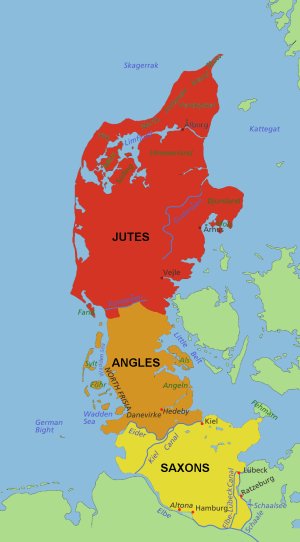 |
However, Rome would never be
forgotten.
Every generation of British
inhabitant that followed the Romans - be they Angles,
Saxons, Normans, Danes, Vikings - would strive to be the
next Romans. Each was trying to regain the glory of that
long-lost age when Britannia began the
long road towards being a unified island.
The Angles and the Saxons
were the Johnny-come-latelies. They were part of the barbarian
invasion of Europe that took out the Roman Empire. The
Angles and the Saxons were two separate tribes who occupied
adjacent territory in Southern Denmark and Northern
Germany.
For a while, the two tribes
were content to stay where they were. However, in the 5th
century, as more barbarians moved into
their area, they decided to
migrate. There are theories that
suggest the two tribes became aware of the vacuum created by
the departure of the Romans and moved west to take
advantage.
The Angles and the Saxons
carved out territory to call their own along the eastern and
southern coast of Britannia. Historically, the Anglo-Saxon
period denotes the period in Britain between about 450 and
1066, the dates of their initial settlement
all the way up
to the Norman
conquest.
The 'Angles' migrated
from Schleswig-Holstein, an area on the northern border of
Germany and the southern border of Denmark. The Angles
mostly settled in the easternmost part of the island. This
area became known as 'East Anglia'.
Just to the north was 'Northumbria',
another Angle-dominated area. The North Sea currents would
typically take any westward-bound ship leaving Denmark
directly to these two spots. The word 'Land' comes
from German. As one might guess, the 'Land of the Angles'
was eventually shortened to 'Angle-Land'
and then to 'England.'
The 'Saxons' were a
Germanic people who occupied the area in Schleswig-Holstein
just south of the Angles. Since they were used to occupying
land south of the Angles, the Saxons settled on
areas
to the south of East Anglia in places near to rivers or the
sea which could be easily reached by boat. The Saxons used
a river known as the Thames to occupy the settlement known
as 'Londonium' that had been abandoned by the Romans.
|
| |
 |
The Jutes did not play as
prominent a role in English history as the better
known Angles and Saxons.
That is because the Jutes were
so well-established in the geographically favorable
spot where Denmark lies today that they felt less
pressure to move.
That said, some of their
people migrated as well. These travelers
generally settled in an area known as Kent.
|
| |
|
The Anglo-Saxons would
eventually take control of most of Britain, although they
never managed to conquer Scotland, Wales and Cornwall.
The word 'Folk' comes
from 'Volk', the German word for 'people'.
Think 'Volkswagen'. As the Saxons moved into
southeastern, southern, and central parts of the island,
they gave German names to their regions.
NORFOLK
were the north
folk.
SUFFOLK were the south folk.
The ANGLE
SAXONS settled in ESSEX, home of the east
Saxons
SUSSEX were the
south Saxons
WESSEX
were the west Saxons.
There were so many
of these Angles running the place that the island became
known as ANGLIA, then ANGLE LAND,
then ENGLAND.
The stretch of water
between England and France was used so often by the Angles
that it came to be called the 'Channel of the Angles',
later shortened to the ENGLISH CHANNEL.
Although France used the
same waters, the Angles... 'Anglish'... or English if
you prefer... used these waters a lot more for an obvious
reason. The English were a seafaring people... or they
would not have gotten to this island in the first place.
|
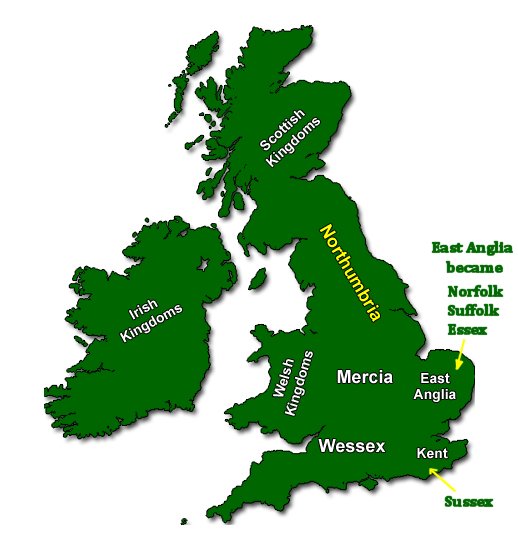 |
| |
|
One might ask if the word 'Angel'
and 'Angle' are related. Apparently not. 'Angel'
comes from the Latin word 'angelus' which comes from
the Greek word 'angelos'.
This makes complete sense
because the Angles were no Angels. In fact, the Angles were
a fierce, warlike people who would murder anyone who got in
their way. Sad to say, but the English were a cruel and
brutal people from the very start. Ask the Scots and the
Irish if you doubt my words. Or ask how many Indians were
massacred by English colonialism in India and North America.
Of course, who am I to point fingers? The Americans
did the same thing to our own Indians. And don't get
me started on slavery. America has its own black eye
to deal with.
France would no doubt also agree with
my assertion that the English were a rough bunch.
If ever there were two
countries that did not get along very well, that would be
England and France. Oh my gosh, those two have been going
at it for centuries. Did you know that France and England
are only 20 miles apart? At a spot near Dover (England)
and Calais (France), the distance is so short that people actually
swim across the English Channel. People with binoculars can
actually watch someone swim the entire distance.
This proximity has led to
many a battle between the two countries. At
one point France and England were
at war with each other for over 100 years. As a bit of
history, The Hundred Years' War was a long struggle
between England and France over who would succeed to the
French throne. The conflict lasted on and off from 1337 to
1453, so it might more accurately be called the '116
Years' War.' But that's not a very catchy
name, is it?
As it turns out, English
history is very interesting. So I
researched several of the highlights to include in this
article. However, before we begin, let's find out how
much you know about English history.
•
We will start with a
fun question. During the Hundred Years War, the most famous battle
in English-French history was won by England due primarily
to the Archers. Can you name the battle?
•
Do you know who the Black Prince
was?
•
Do you know what the Hundred Years
War was all about?
•
Do you know
want to know why 99% of all English
have at least a drop of royal blood?
•
Why is the date 1066
important?
•
Who was the most over-rated
King in English history?
•
Can you name the
most famous thief in English history?
Are you curious to know the answers?
If so, read on!
William the Conqueror and the
1066 Battle of Hastings
One of the reasons English
history is so fascinating is that there was always so much
drama surrounding the King. There were certain periods when
there was no clear successor to the throne. Two, three,
maybe even four people might have a legitimate claim to the
throne. Consequently there were plots, rebellions and
assassination attempts galore. There was always someone new
scheming to get rid of the current King and put someone
else on the throne.
the Battle
of Hastings was a perfect example
of the chaos that ensued every time an English King or Queen
died. The English loved war so much that transitions were
basically an open invitation to renewed bloodshed. Sort of
like America today... just kidding.
So what was the Battle
of Hastings all about?
King Edward the Confessor
was childless. His death in January 1066 set up a
succession struggle between several claimants to his throne.
Harold was crowned king shortly after Edward's death, but
faced multiple threats. First came Tostig, his own brother
who had been exiled. Tostig persuaded Norwegian King Harald
Hardrada to join him in the fight. There were two battles
in September 1066. Tostig and Hardrada won the first round,
but Harold won the rematch, killing both Tostig and Hardrada
in the process.
| |
|
Now Harold had to face
William of Normandy. Normandy, of course, is where D-Day
took place in 1944. Normandy lies right across the English
Channel 100 miles to the south of England.
William wanted to be the
next King of England. William claimed that both Edward and
Harold had promised him the throne, but English supporters
of Harold challenged this. Basically, William had no real
claim to the throne, but that didn't matter. As always, 'Might
makes Right.'
While William was building ships
in Normandy, he also
assembled an invasion force. The
fleet sailed 60 miles
from the mouth of
France's Somme River in October 1066 and
landed on the English coast near Hastings, a town
50 miles southeast of London.
King Harold of England met William's
army just north of the coastal town of Hastings.
The two sides were evenly
matched. Consequently the battle lasted all day from
morning to sunset.
Early efforts of William's invaders to
break the English battle lines had little effect, so the
Normans tried a trick. They pretended to flee in panic and
led their pursuers into a trap.
Harold was one of the
victims. Legend says he was shot in
the eye with an arrow. His death near the end of the battle led to the
retreat and subsequent defeat of his army.
|
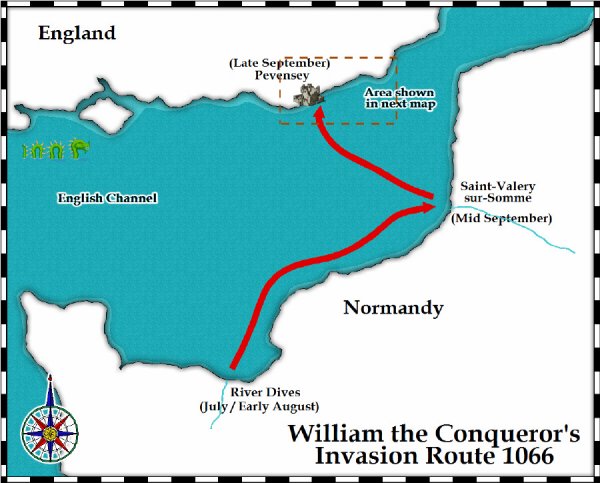 |
| |
|
A little known fact is that
Harold's defeat at Hastings was attributed to his appalling
lack of Archers. Makes perfect sense to me.
Everybody knows how important Archers
are.
After a few cleanup
skirmishes, William was crowned as the
English king on Christmas Day
1066. And there you have it... a Frenchman sat on the
English throne. The world had turned upside down.
William spent his entire life dealing
with the shame of being born a bastard. Even to his
death, there were whispers about his ignoble birth.
Rumor has it that even his eventual wife snubbed him over
this issue.
When William
asked for the hand of Matilda of Flanders, a granddaughter
of France’s King Robert II, she demurred
due to his illegitimacy.
According to legend, the snubbed Duke
tackled Matilda in the street, pulling her off her horse by
her long braids. In any event, Matilda
consented to marry him. Matilda
would go to bear her Conquering husband 10 children.
Maybe there is something to be said for the Tarzan approach.
| |
|
The Anarchy,
1135-1154
|
| |
|
The Anarchy was
a lawless time in England more or less like
America's Wild West. No one was really in
charge. The problem began problem started 70
years earlier when William the Conqueror, a
Frenchman of sorts (Viking bloodline, birth on
French soil), became King of England following the
Norman Conquest in 1066.
The repercussions were
profound as the invasion created an Anglo-Norman
elite, i.e. French barons whose main interest was in
France, but used their money and power to obtain
territory in England. In other words, England
became something of a French colony. These
barons now had estates and holdings in France as
well as in England.
To understand medieval France
and England, realize that 'Kings' in both
countries had only limited power. The barons
all had smaller Kingdoms of their own complete with
armies and castles. Sometimes they obeyed the
King, sometimes they didn't.
The most powerful English
barons typically lived back in France and visited
England from time to time. France itself was a
loose collection of counties and smaller political
units that were under only the minimal control of
the French king. In other words, England was
very disorganized and France wasn't really all that
much better.
Therefore, the barons ran wild.
Like little piggies, these barons wanted to rule
over as much land as possible no matter what the
cost. The easiest way to get land was to pick
a fight.
William II and
Henry I were the sons of William the
Conqueror who took over after his death. They
were called 'Kings', but really they were
more like the biggest baron of all. They
called the shots, but rebellion was always a
problem. The Anarchy began
when Henry I died suddenly.
|
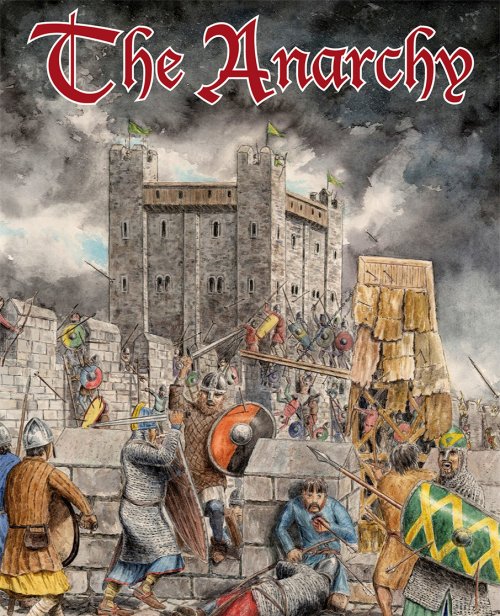 |
| |
Geoffrey
Plantagenet and Empress Matilda
|
| |
|
 |
The story of The Anarchy
begins with Empress Matilda.
One of real problems with
deciphering English history is that English Kings
were unimaginative when naming their heirs.
There were eight Henrys. There were eleven
Edwards. Henry
and Edward and Edward and Henry. On and on. Good grief, there
were more Edwards and Henrys than there are Star Wars episodes. If it wasn't for
Roman numerals, I don't know what the English would do.
Even the women got in the act.
William the Conqueror had four Matildas... his wife Matilda
of Flanders, his daughter Waltzing Matilda, his
daughter-in-law Matilda of Scotland, and his granddaughter
Empress Matilda.
|
| |
|
Here is the funny thing. For a
long time there, I
thought I was reading about the same woman. After all,
how many Matildas can there be in history? Then I got
suspicious when the stories didn't make any sense. It took me
20 minutes of
cross-checking to suddenly realize there were four of them!
Empress Matilda's father was Henry I,
the youngest son of William the Conqueror. Henry I
suffered a terrible misfortune when his two sons drowned.
This took place when the White Ship sank on its way
from France back to England.
Stripped of his two male heirs, Henry I broke tradition and
specifically named his daughter Empress Matilda to be his successor.
So why was Matilda an Empress?
Matilda had once been married to a
German king who was named ruler of the Holy Roman Empire.
This made her the Empress of the Holy Roman
Empire, an institution in continental Europe under the
jurisdiction of the Catholic Pope. However, her husband's death had sent Matilda back to
England as a widow at 23.
Matilda was eventually
forced to marry Geoffrey Plantagenet, the Count of Anjou,
a wealthy French landowner. Matilda was very unhappy
about this. For
starters, she was 25 and Geoffrey was only 13. She had
once been an Empress, now she was marrying down to a mere
Count. Boo hoo hoo.
Matilda's father pointed out that this
marriage would combine two of the most powerful Anglo-Franco
families ... the Normans and the Plantagenets. Henry I
chose Geoffrey to sire his grandchildren because his lands
were strategically placed on the Norman frontiers and he
required the support of Geoffrey's father, his erstwhile
enemy, Fulk of Anjou. He accordingly forced his highly
reluctant daughter to marry the fifteen year old Geoffrey.
Matilda wasn't happy about it, but she
got with the
program and married Geoffrey. The pair disliked each
other from the outset of their union and neither was of a
nature to pretend otherwise and so the scene was set for an
extremely stormy marriage. They were, however, finally
prevailed upon by the formidable Henry I to do their duty
and produce an heir to England. They had three sons, Henry
was the eldest of these and always the favourite of his
adoring mother.
Eight years after her 1127 marriage to
Geoffrey, things got interesting. Matilda's
father Henry fell ill and died suddenly in 1135. This meant Matilda
was now the heir to the English throne and the ruler of
Normandy. Unfortunately, the English barons who had vowed to support the accession of Matilda to
the throne reneged. Stephen of Blois was a well-known,
popular figure among the barons of Anglo-Norman society.
He also had the advantage of being right across the English
Channel when news of the king's death was spread.
Meanwhile Matilda was stuck in the center of France and
unable to press her case in person.
Stephen was attractive to the English
barons for two reasons. One, he was not only the
direct grandson of Henry I, the king had always treated
Stephen as a favorite. Second, these men were not too
keen on putting a woman on the throne. The English Council acted
like they were still stuck in the Dark Ages and denied Matilda the crown. They
stepped aside and allowed Stephen, Matilda's cousin, to
seize the throne instead. Matilda had been cheated of
her crown.
Matilda was royally
irritated. It did not help that
Matilda was haughty, disagreeable and
ill-tempered by nature. So naturally Matilda went to war
against Stephen.
That's what everyone did back in those days. It didn't
do her much good. She won a few battles, lost a few
battles, then got frustrated and gave up. The
Anarchy was not going in her favor
at all. By the late 1140s the active
phase of the civil war was over. In a huff,
she returned to France and fumed.
Stalemate.
Matilda was determined to have the last laugh.
As it turned out, Matilda had a strapping son at home.
Henry Plantagenet was her son by Geoffrey
Plantagenet. Born in 1133,
he was three years old when his mother was
cheated of her inheritance. By age
nine, Matilda had Henry fighting at her side. However,
they just couldn't seem to break though.
Then someone new appeared. Matilda
would receive help from an unexpected source... a woman her
husband had just had a fling with.
|
|
|
|
Geoffrey Plantagenet
of Anjou
|
| |
Geoffrey Plantagenet
was a powerful man who ruled over his ancestral domain of Anjou.
The House of Plantagenet had extensive land holdings
in France.
Through her birthright to
William the Conqueror, Matilda also had
extensive claims in Normandy which was neighbor
to
Anjou. Count Geoffrey had little
interest in England, but he was very
interested in Normandy. Geoffrey
initiated a war to obtain the duchy of
Normandy, but it was slow-going.
It became clear to Geoffrey that Stephen
would need to be challenged in England in
order to bring his own conflict to a
successful conclusion. So in 1139
Matilda invaded England. From the age of
nine, their son Henry was repeatedly sent to
England to be the male figurehead of the
campaigns. This made sense since Henry
would become king if England could be
conquered.
While his wife Matilda was off in England
fighting Stephen, Geoffrey invaded Normandy
on behalf of his wife. The Norman
barons initially opposed him, not through
loyalty to King Stephen, who had only
visited Normandy on but one occasion, but
from hatred of their traditional enemy,
Anjou.
While Geoffrey was attempting to conquer
Normandy, he was also forced to put down
three rebellions in Anjou created by his
younger brother. The threat of
rebellion not only slowed Geoffrey's
conquest of Normandy, it is the main reason
he could not intervene in England to aid his
wife.
|
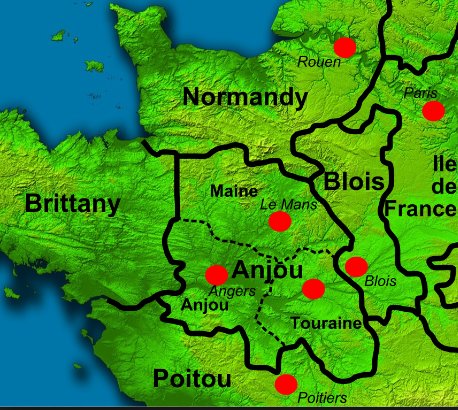 |
|
| |
Eleanor of Aquitaine
|
| |
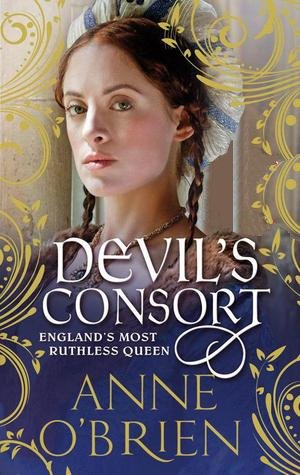 |
Eleanor
of Aquitaine
(1122-1204) appeared in the middle of Matilda's
fight in England and Geoffrey's fight in Normandy
and Anjou. Life would never be the same.
Eleanor, Duchess of Aquitaine, is a
determined woman who plots and schemes an astonishing
path between two equally powerful men in twelfth century
Europe.
This is a woman who can
maneuver and manipulate to
safeguard her own lands as effectively as any
power-grasping lord. Eleanor is single-minded in her
struggle to keep her inheritance intact, leading her to
reject one husband and take another who will fulfill her
desires.
Eleanor intends to reign as Queen and is
prepared to bring scandal down upon herself in pursuit
of her ultimate prize. Hers is a story of power,
political intrigue, passion and love.
This restless queen will sweep across the 12th
century, changing the face of Europe.
Eleanor's story is fascinating. She was the
daughter and heir of the imperious William X, Duke
of Aquitaine and Count of Poitiers. Her father
possessed the largest domains in northwest Europe,
indeed larger than those held by the king of France,
Louis VI from the House of Capet. When her father
died in 1137, Eleanor, 15, came into her
inheritance. Complying with the dictates of a
territorial agreement, she married Louis VII, heir
to the French throne. Barely a month after the
wedding, King Louis VI died, thrusting Eleanor’s
16-year-old groom to the throne of France.
Eleanor found court life as queen of France
stultifying. Her timid, sweet-tempered and devout
husband exasperated her. Formed during her
childhood at the court in Poitiers where she was
rarely disciplined and always admired, her strong
ego impelled Eleanor to create a lofty royal vision
for herself, one that did not encompass the
subordinate role as queen of France.
|
|
|
|
After a
decade of marriage to Louis, she was as beautiful
and capricious as ever, but even more headstrong and
domineering toward her husband. From 1147 to
1149 Eleanor insisted on accompanying him during the
Second Crusade. Apparently the adventure
carried a rude awakening... Crusading was no fun.
According to Simon Schama, “Eleanor was dismayed to
discover that crusading was an arduous, pious
business. She quickly developed an unhealthily warm
relationship with her uncle, the slightly impious
Raymond of Poitiers.” While her husband fought
battles in the Holy Land, Eleanor spent her time in
arms of Raymond in complete comfort for the duration
of the crusade. This understandably caused an
estrangement.
Though at one time Louis had adored his wife, after
15 years of marriage he was willing to let her go
for the sake of the Capetian royal line.
Eleanor had not borne him a son and heir, only two
daughters. Eleanor, on cue, illuminated her
predicament, explaining that her husband’s
infrequent visits to her bed accounted for the
fruitlessness of their union. In the end, the
marriage was annulled on the convenient grounds of
consanguinity: Eleanor and Louis were too closely
related for the church to tolerate.
|
|
|
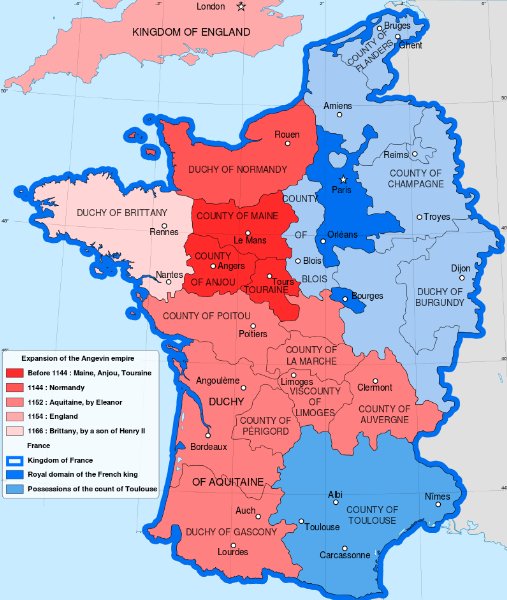 |
As Duchess of Aquitaine,
a massive duchy in
southwestern France, Eleanor was the most eligible bride in Europe.
Men came calling.
Following the dissolution of her marriage,
Eleanor regained possession of Aquitaine and
Poitou. This wealth combined with her
loveliness attracted suitors well before the
annulment was final, one of whom was Henry
of Anjou (a domain bordering Poitou), soon
to be known as Plantagenet.
One of the men who came calling was Geoffrey
of Anjou. Most historians agree that
Eleanor and Geoffrey were sexually intimate.
Historian Schama notes, “It was rumored that
Geoffrey of Anjou had personally verified
Eleanor’s appetite for passion before
recommending her to his son.”
Now Henry, Geoffrey's son, came calling as
well. The 30-year-old Eleanor and
18-year-old Henry felt passionately
attracted to one another. Henry’s
unsurpassed physical courage and keen
political acumen resonated with Eleanor’s
ambition for power. Another attractive
feature was that Henry, now the Duke of
Normandy and Anjou, could very likely become
the next King of England.
Asked some years before to assess Henry’s
chances of success of becoming King of
England, St Bernard of Clairvaux said of
Henry that ‘from the Devil he came, and
to the Devil he will surely go’.
It did not matter that Henry was reported to
be the spawn of Devil. That suited
Eleanor's tastes just fine. Not
exactly a shrinking violet herself, Eleanor
chose to be the Devil's consort.
Eight weeks after her annulment, Eleanor
married Henry in 1152. Instantly the marriage doubled
the land holdings of Europe's new power
couple.
Over in Paris, Eleanor's former husband
Louis VII flipped out. Louis not only
considered the marriage an insult to him, he
was also infuriated because Henry now
possessed a much larger proportion of France
than Louis did himself.
|
|
|
|
Henry Plantagenet
becomes King
|
| |
|
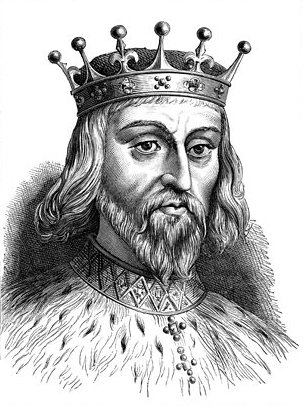 |
Strengthened by his
1152 marriage to Eleanor, Henry Plantagenet
wasted no time going back after Stephen.
Henry's mother Matilda was still seething
over her cousin Stephen's theft of her
crown. Based on Matilda's strong claim
to the English throne, Henry had a powerful
claim of his own. Indeed, his
grandfather Henry I had once called him the
future king of England.
Under the reign of the
usurper Stephen, for the previous twenty
years the Anglo-Norman realm had suffered
through a civil war fought out between the
adherents of Stephen and those of Henry’s
mother, the Empress Matilda. In this
time, lawlessness prevailed. It was
every man for himself. Northern
England had been seized by the Scots. The
Welsh had made substantial advances in the
West. England itself had been
partitioned between warring baronial
factions, each with its own competing and
still unresolved claims to land, castles and
local power.
The fighting between
Henry and Stephen continued, but no one
could
get the upper hand for long. Finally, the two armies
met at Wallingford to begin fighting the
battle to end all battles. Taking note
that neither side had an advantage and that
lots of men, barons included, were about to
die, cooler heads prevailed. The
Anarchy had been going on for 20
years. Enough was enough. Since
neither side's barons were keen to fight
another pitched battle, the barons had an idea... why not
ask the clergy to broker a peace?
So, much to the
annoyance of Henry and Stephen, the battle
was postponed. Stephen began to
examine a negotiated peace, a process
hastened by the sudden death of Eustace, his
son and heir. In the Treaty of
Winchester, Stephen recognized Henry as his
heir in exchange for peace. Stephen
conveniently died the following year in
1954. Henry was King; Matilda was
vindicated.
|
|
| |
|
Henry II and
the Plantagenet Dynasty
Ruling from 1154-1189,
King Henry II would emerge as one of
England’s, indeed as one of Europe’s,
greatest kings. The Plantagenet
dynasty founded by Henry II
would hold the English throne
for three and a half centuries (1154-1485), starting
with the 1154 accession of Henry II and
lasting until
1485 when Richard III died.
King Henry III was the
grandson of Henry II through King John.
Henry III had two sons... Edward I and
Edmund Crouchback. ANGEVIN KINGS
The House of
Lancaster was a branch of the royal
House of Plantagenet. The first house was
created when Henry III created the Earldom
of Lancaster—from which the house was
named—for his second son Edmund Crouchback
in 1267.
Over time, the House
of Lancaster subdivided into two wings.
The 1359 marriage of John of Gaunt from one
wing of the House of Lancaster to Blanche
from the other wing of the House Lancaster
reunited the two wings. Starting in
1399, the House of Lancaster would give
birth to three future kings.
Meanwhile, King Edward
III was the grandson of King Edward I.
As we shall see, Edward III was a pivotal
figure in English history.
•
Edward III named John
of Gaunt, one of his sons, the Duke of
Lancaster.
•
Edward III named
Edmund, another other son, the Duke
of York.
•
Edward III had yet
another son, Lionel, whose descendent
Richard, Duke of York, would
play a key role in English history.
Are you following all
this? If you haven't already guessed, English history
is very complicated. So let me simplify things
a bit.
The bottom line is
that the Angevin kings... Henry II, Richard
I, John I... were Plantagenets. The
Plantagenet kings... Henry III, Edward I,
Edward II, Edward III, and Richard II...
were Plantagenet kings. The Lancaster
kings... Henry IV, Henry V, and Henry VI...
were Plantagenet kings. The York
kings... Edward IV, Edward V, Richard III...
were Plantagenet kings. The Tudor
kings and Queen Elizabeth were Plantagenets
as well.
It all started with
Henry II and Eleanor of Aquitaine.
|
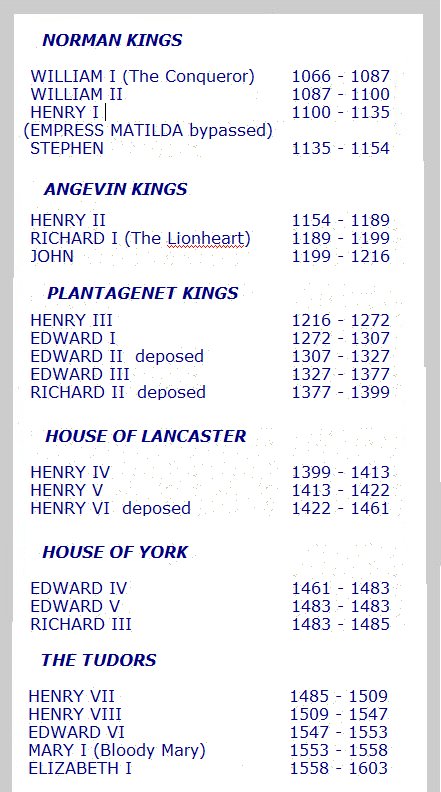 |
|
| |
|
Henry II and the
Angevin Empire
|
| |
|
The term
'Angevin' is a reference to the duchy of 'Anjou',
birthplace of Henry II.
Thanks
to a perfect storm of good luck, Henry came to rule
over the most extensive collection of lands that had
ever been gathered together under an English king.
•
From his father, Geoffrey,
Henry succeeded to rule over Anjou, Maine and the
Touraine: the counties of the Loire valley that had
previously blocked Anglo-Norman ambitions in the
South.
•
From his mother, Matilda,
daughter and sole surviving legitimate child of the
last Anglo-Norman King, Henry inherited his claim to
rule as king in England and as duke in Normandy.
•
From his wife Eleanor, Henry
found himself in possession of a vast estate in
southwestern France, stretching from the Loire
southwards through Poitou and Gascony to the
frontiers of Spain.
This was
an empire in all but name. Henry's lands
stretched from the Cheviots to the Pyrenees, and
from Dublin in the west to the frontiers of Flanders
and Burgundy in the east. And this all just
for starters. Henry would acquire more lands
throughout his reign.
|
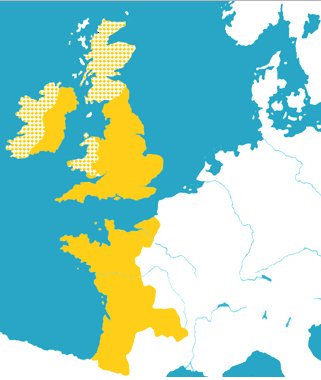 |
| |
|
Henry II of Anjou was more French than he was
English. His native tongue was French. A
brilliant soldier, he extended his French lands
until he ruled most of France. With territory
stretching from sea to shining sea, by the late
1170s, Henry ruled an estate that eclipsed anything
that had been seen in France since the time of
Charlemagne and in Britain since the fall of Rome.
In its cultural and political sophistication,
Henry’s dominion badly outshone the Capetian kings
of France. Louise VII, struggling to maintain his
rule over the immediate vicinity of Paris, could
only look on in astonished but for the most part
impotent amazement. Henry had set England on a path
to becoming one of the world’s most dominant
nations.
So was Henry II a happy guy?
One can only wonder. Henry would prove to be a very
controversial king. Although he had succeeded
in wresting control of England from the barons who
had gotten too big for their britches, he quarreled
with everyone under sun including his wife, his
sons, the barons, Thomas Becket, and King Louis of
France.
Henry quarreled a lot his
wife. By temperament Eleanor was just as fiery
as Henry, and as determined to stake her own claims
to rule. Despite their
turbulent marriage, they did find the time to produce
eight children, mostly notably King Richard I the
Lionhearted, the son who would succeed his father.
Henry had one very bad habit.
He did not like to share his lands. He did not
share his inheritance with his brothers and he had
trouble sharing his estates with his sons.
Naturally his sons turned rebellious. And when
they did, his wife took their side. As a
result, Henry’s domestic life was far from tranquil.
Henry lost his temper with Eleanor and had her
imprisoned under house arrest for sixteen years.
She would not be freed until his death in 1189.
Henry is remembered for his
quarrel with Archbishop Thomas Becket. After
Becket's subsequent murder in Canterbury Cathedral
on 29th December 1170, his sons turned against him,
even his favorite son John. Henry II spent all
his later years fighting wars with his own sons.
Henry II died a bitter man, hated by practically
every noble on either side of the English Channel.
|
| |
The Legend of Eleanor
Lives On
|
| |
Eleanor was Queen of England
for 44 years (1154–1189).
Over the first
thirteen years, she bore Henry eight children: five
sons, three of whom would become kings; and three
daughters.
However,
over time Henry and Eleanor
became estranged. Henry imprisoned her in
1173 for supporting her son Henry's revolt against
her husband. In
1173, Eleanor’s son “Young Henry”
fled to France. He was
apparently plotting
against his father to
seize the English throne.
Eleanor
was rumored to be actively supporting her
son’s plans against her estranged husband,.
She was arrested and imprisoned for treason.
Once apprehended, she spent the next 16 years
shuttling between various castles and
strongholds in England. She
was constantly suspected of agitating against
her husband’s interests.
Some even say she played a role in the death
of Rosamund, Henry's
favorite mistress.
Eleanor was not released until 6 July 1189,
when Henry died and their son ascended the English
throne as Richard I.
|
 |
| |
After
Henry's death, Eleanor became a babysitter of sorts
for her son Richard who went off to play in the
Crusades.. Eleanor ruled the country as Regent
in Richard’s name while he led the Third Crusade.
Eleanor
lived to the remarkable age of 82. She was
able to see her youngest son John crowned king after
Richard’s death and was employed by John as an envoy
to France. Eleanor would eventually retire as
a nun to the abbey at Fontevraud, where she was
buried upon her death in 1204.
Endowed
with intelligence, creative energy and a remarkably
long life, Eleanor of Aquitaine played a major role
in the 12th century. This was an impressive
achievement given that medieval women were
considered nothing more than chattel. Her
intelligence and enterprise served her well in the
chaos of the time as she negotiated the unrelenting
hostilities between Plantagenets and Capets,
crusades and struggle between church and state.
In a ruthless era, Eleanor stood tall.
Too bad
her sons didn't inherit her cunning. It had to
be a terrible shame to see her sons, Richard the
Lionheart and King John turn on their father and
then later against each other. Together they
brought the Angevin dynasty to the edge of
annihilation.
|
| |
|
Who is the
Most
Over-Rated King in English History?
Let's start
this
question by playing the Name Game.
My full name is 'Richard
James Archer.' English names hang like ornaments
throughout my family tree.
'James'
is my father's name. James is the most common male first
name in all of Britain. James is a royal name associated
with the Scottish house of Stewart. James I of Scotland was
the man who succeed Queen Elizabeth I in 1603. King James
was a patron of the arts as well as a talented ruler.
'Mary'
is my mother's name. Mary is the most common female first
name in all of Britain. The name Mary is sprinkled
throughout English and Scottish history. Bloody Mary, Mary
Queen of Scots, William and Mary, and of course the beloved
Queen Mary III. Queen Mary and her husband King George V
ruled during World War II. Queen Mary was the mother of
the current Queen Elizabeth.
'William'
is the fifth most common male English name. William was the
name of my grandfather and one of my uncles. William is
everywhere in English history. For example, William the
Conqueror. Remember him? William changed the history of
the world thanks to his conquest of England in 1066 at
the Battle of Hastings.
'Richard'
is a name of Germanic origin, derived from 'ROC' which means
'power' and 'HARD' which means 'hardy'.
That's me all right, Rock Hard Richard!
So let's
see how the most famous Rock Hard English King of them all
fared. 'Richard'
has been the name of four
different English Kings, two of whom were rotten,
one of whom became Shakespeare's greatest villain and the
fourth is considered the most overrated
King in English history. By
the way, I was named for the over-rated
one.
| |
|
King Richard the Lionheart
|
| |
|
And that brings us to 'Richard
I', better known as King Richard the Lionheart, the
most famous Crusader of all!
(Let us pause
for the
trumpets to blare!)
According to my mother, King
Richard the Lionheart was the man I was named for. I was
very proud to be named after the illustrious English King.
According to my father, our
surname 'Archer' descended from Robin Hood and his
Merry Men.
Gullible little critter that
I was, wow, here I was... part Richard the Lionhearted and
part Robin Hood!!
Alas, if only we could have stopped with
the Adventures of Robin Hood starring Errol
Flynn as Robin and Olivia de Havilland as Maid Marian.
That was defining movie of
my childhood. 3 Oscars! Much acclaim!
|
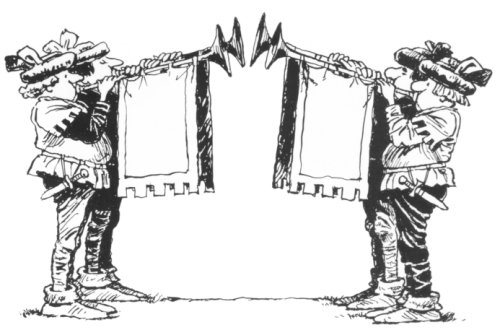 |
| |
|
 |
In
the movie, Robin Hood
becomes my hero. He
is depicted
as a heroic outlaw folklore who, according to
legend, is a highly skilled archer and swordsman.
Traditionally dressed in Lincoln green, he is
portrayed as a champion of the
downtrodden, "robbing from the rich and giving to the poor"
with the help of his loyal band of Merry Men.
He
fights off the bad guys, keeping the Sheriff of Nottingham and evil
Prince John at bay while
noble Richard is away at the Crusades.
Then
Robin Hood comes to the rescue of King Richard when he
returns. There is a joke in
Hollywood that King Richard had an amusing
nickname... ‘Richard of the Last
Reel’. Film buffs love
to make fun of the fact that Richard appears
at the end of every Robin Hood film as the heroic,
and supposedly victorious, crusader monarch
returning to punish treacherous Prince John and the
wicked Sherriff of Nottingham.
Action! Adventure! Courage!
Chivalry! History!... well, not so much history.
To begin with, there are
strong rumors that Richard did not even speak
English. In his whole reign, he spent no more
than six months north of the Channel. For that
matter,
imagine my pain when I discovered Robin Hood... the
man who was the most famous Archer in
English history... may not
have actually existed.
The
subject of ballads, books and films, Robin Hood has
proven to be one of popular culture’s most enduring
folk heroes. Over the course of 700 years, the
outlaw from Nottinghamshire who robs from the rich
to give to the poor has emerged as one of the most
enduring folk heroes in popular culture.
But did a real
Robin Hood inspire these classic tales?
|
|
|
|
|
|
|
|
What a shame it was I had to
grow up and learn the truth that the
greatest Archer of all time was probably a Hollywood
sham.
Robin
Hood, Fact or Fiction?
The History Channel suggests that Robin Hood
may have existed. In fact, research has turned
up mentions of eight different outlaws calling
themselves 'Robin Hood'. The problem is
that the first known mention took place in 1225.
'Richard of the Last Reel' died in 1189.
Whether Richard met the legendary
outlaw Robin Hood in Sherwood Forest, we do not
know, but it seems kind of
unlikely.
Personally I like the idea of
weaving legends together.
I think
this is a great idea. Davey Crockett can be
Abe Lincoln's best friend. Thomas
Jefferson can suggest improvements to Obamacare.
Vladimir Putin can
assassinate John F. Kennedy with a magic bullet
controlled by hackers. Donald Trump can grope
Pocahontas. Why let the truth get in the way
of a great yarn??
Alas, when I learned Robin
Hood was only a legend, I was fit to be tied. Half of my
gallant identity was gone. Well, no matter, I still had
Richard the Lionheart, brave Crusader, wonderful King. Yeah, well, then I
discovered that Richard the Lionheart was pretty much
useless as a King. During his ten years reign as King,
Richard spent at most six months of it in England. The rest
of the time he gallivanted across Europe and the Middle East
involved in the Crusades. Richard won a bunch of battles,
but he was unsuccessful in retaking Jerusalem from his
nemesis Saladin, the Muslim warlord.
Then Richard managed to get
captured in Austria on his return home. He spent nearly
three years of his reign in captivity until the ransom was
finally raised. Once he was free, Richard
returned for a couple of weeks, then left for France never even
bothered to set foot in England again.
Richard
spent his final years fighting battles to reclaim
territory in Normandy.
My loyalty to Richard was further
shaken when I discovered he was either gay or bisexual.
Despite being married, Richard did not have a child.
Nor did he bother to return to his wife following the
Crusades. In addition, there is a curious historical
quote involving King Philip II of France.
Richard
the Lionheart and Philip II of France “ate every day at
the same table and from the same dish, and at night their
beds did not separate them.” Uh oh. What could this
mean??
However, historian Dr. John
Gillingham discounted the idea that
Richard was gay.
"The idea wasn’t even mooted
until 1948 and it stems from an official record
announcing that, as a symbol of unity between the two
countries, the kings of France and England had slept the
night in the same bed. It was an accepted political act,
nothing sexual about it; just two politicians literally
getting into bed together, a bit like a modern-day photo
opportunity."
So what was the story on this
kidnapping?
I hate to say it, but Richard was not
the nicest guy. During the Crusades, Richard quarreled
constantly among the French, German and
English contingents. Irritated, they all went home,
leaving Richard to fight on alone. After a
year's stalemate, Richard made a truce with the famous
Saracen ruler Saladin and
decided to head home. However, there was one problem.
Towards the end of his Crusade adventure, Richard was stuck with over
three thousand Muslim prisoners. Tired of feeding them
and unable to ransom them, Richard had their throats slit.
Richard's bad karma soon caught up to
him. Bad weather drove him ashore near Venice. Now he
had to head home on foot. Having insulted and alienated most of his
Christian allies while on crusade against Saladin, Richard
was unable to return to his kingdom in broad daylight.
He was caught sneaking in
disguise through the territory of Leopold, Duke of Austria, one
of the many enemies he had made in the Holy Land.
Leopold handed Richard over to the German emperor Henry VI,
who ransomed him for the huge sum of 150,000 marks.
This was literally a King's Ransom.
The ransom asked was about 2 billion pounds in today’s
money. Its payment required 25 percent of each
Englishman’s income for a year.
Interestingly, while Richard's ransom
nearly bankrupted his country, he became famous and
much-loved in the process. How was this possible?
Now we recall that Richard was
the son of Europe's
most famous mothers, Eleanor of Aquitaine. Eleanor just
happened be in charge of running England while Richard was
out of the country. Queen Eleanor originated the enduring
legend of ‘Good King Richard’ as a PR campaign by to persuade the citizens of the Plantagenet
empire to fork over the crippling ransom.
The raising of the ransom was a remarkable achievement.
Negotiations for Richard’s release took the best part of a
year, and after strenuous diplomatic efforts by Queen
Eleanor of Aquitaine, the payment of 100,000 marks – an
enormous sum, perhaps twice the gross domestic product of
the whole of England at the time – and the handing over of
hostages, the King was released in early February 1194.
After his release, Richard briefly returned to England and
was crowned for a second time. One month later he went to
Normandy, never to return. His last five years were spent in
intermittent warfare against Philip II, his alleged former
boyfriend.
While besieging the
castle of Châlus in central France he was fatally wounded
and died on 6 April 1199. He was succeeded by his younger
brother John.
John? John who? Surely not
the same Prince John who was the villain in
the Adventures of Robin Hood??
Yup, same guy. After all those
years spent scheming during Richard's absence, John ended up
being the King after all. And why was John made King?
Because the guy historian Dr. John Gillingham claimed was
straight didn't bother to produce an heir!
So how did John turn out? Not
very well. John has been termed 'the worst king in
English history'.
Short and fat, John was jealous of his
dashing brother Richard I whom he succeeded. John was
cruel, self-indulgent, selfish and avaricious. The
raising of punitive taxes united all the elements of
society, clerical and lay, against him. The Pope
excommunicated him and the English barons ganged on him.
On 15th June 1215 at Runnymede the barons compelled John to
sign Magna Carta, the Great Charter, which
reinstated the rights of all his subjects. John died
from over-eating. He was in hiding at the time, a
fugitive from all his enemies.
Let's
face it, when all was said and done,
Richard the Lionheart didn't accomplish much.
Richard lived to the ripe old age of 42. For
ten of these years,
1189-1199,
he theoretically ruled England...
History
suggests Richard spent at most six months of his
life in England. So here are the facts:
Richard
didn't win Jerusalem, he didn't produce an
heir, he ignored his country, he nearly bankrupted it with
his Crusades and his ransom, and stuck England with the
worst ruler in history.
And yet, if people in the streets of any
European city today were asked to name one English king,
many would probably answer ‘Richard the Lionheart’!!
How utterly crazy is that?
Fortunately Richard had a
good press agent... his Mom! During his reign, all the people back in
England heard nothing but good things about their missing
Good King
Richard. Even today Richard retains a similar good fortune...
or at least it did for a while. Back in the early days of Hollywood,
Richard was portrayed as a stud warrior, a defender of God,
a mighty Crusader and a noble King.
Richard's
reputation definitely benefitted from appearing
at the end of every one of a half-dozen Robin Hood
movies. Richard's modern-day
legend was built on
Robin Hood's modern-day legend and Robin Hood's legend was built on
Richard's and if you ask anyone, they will tell you
both
men were real
and both were great heroes. That's
Hollywood for you.
Recently Hollywood has been
less kind. Revisionist history seems to have caught up with
Richard. His reputation has taken a few hits, notably in
the movie 'Lion in Winter' where Richard can
be seen frolicking in bed with Phillip of France. So much
for my role model.
Wikipedia sums Richard up as
'a bad son, a bad husband, a selfish ruler, and a vicious
man. During his ten years' reign, he was in England for no
more than six months, and was totally absent for the last
five years.'
And did Richard die a noble
death? Not exactly. Richard died rather ingloriously from
gangrene following a crossbow
bolt wound in his shoulder.
Was Richard shot in battle?
No, Richard was walking
along the walls of his castle without his armor on. Some
kid down below took a potshot and hit him. Now that I
think of it, an Archer killed King Richard. No wonder I
have identity issues... I am at war with myself.
For a kid who grew up
worshipping Robin Hood and King Richard, history has not
been kind to me. I thought I was
named for the finest King in English history only to realize
I was named for the most over-rated one. But you know, it could have been worse.
Think about all the
poor little German boys named 'Adolf'.
|
|

The Hundred Years War,
1337-1453
The Hundred Years War was fought over
ostensibly over the French Crown, but mostly it was
an excuse for English thugs and bandits to raid helpless
farmers and rape French girls. It was definitely
one of the most notable conflicts of the Middle Ages.
For 116 years, five generations of kings from two rival
dynasties fought to control the throne of the
largest kingdom in Western Europe.
If you ever wonder why the English
hate the French, think back to William the Conqueror who
imposed his French way of doing things onto England.
However, that resentment pales in comparison to the French
point of view. If you ever wonder why French hate
the English, start with
William the Conqueror and then follow the dots until you get
to the Hundred Years War. Virtually every English king
since William the
Conqueror brought havoc and misery to France
for centuries.
William the Conqueror was from Normandy, France.
Thanks to him, there was a succession of English Kings with
deep French ties that made them feel entitled to seek the
French crown as well as the English crown. That is what the
Hundred Years War was all about.
The Romantics like to point out that
armies of knights and archers battled for King and Country
on the field of glory. What utter nonsense. 'Chivalry'
may have the code word of the day, but little decency was shown.
At the end of many battles, helpless prisoners were
murdered in cold blood because the victors didn't feel like
feeding them. Unless a guy was worth some money in ransom,
it was easier just to slit his throat at the end of the day.
One time the English captured John II, the King of France,
in the 1356 Battle of Poitiers. The English set the
ransom price so high that the French had no choice but to
tell the English to go ahead keep him.
According to Stephen Clarke, author of
1000 Years of Annoying the French, the Hundred
Years War was basically used by the English as an excuse to
inflict 116 years of terror on French civilians. This
terror was conducted by out-of-control English bandits who
claimed to defend their king's rights. The truth was
they were actually hard at work enriching themselves and
having fun massacring as many helpless peasants as they
could.
As Clarke pointed out, for more than a
century, no town in the northern part of France was safe
from siege and plunder. Peasants could not work in
their fields without posting lookouts on hilltops, church
belfries, or up in trees. If a dust cloud was sighted,
the farmers would throw down their tools and run for their
lives. They knew that any man caught would either be
held to ransom if he was rich or put to death. Was the
death swift according to the prevailing sense of chivalry?
Are you out your mind? Chivalry? Absolutely not.
Each man was tortured hideously until he revealed where his
meager savings were hidden and where his wife and daughters
were hiding. Then the English would plunder the money
and rape the women. This was basically 100 years of
Genocide. Adding insult to injury, the Black Plague
took place and removed another 25% of the French population.
There's an old saying, 'Won the
battle, but lost the war.' In the French case, the
saying should go, 'Lost all the Battles, but won the war'.
Although it is true that the French eventually expelled the
English in 1453, the cost to France was beyond horrible.
In addition to one humiliating defeat after another in the
early stages of the war, the French saw their people
slaughtered, their towns destroyed, and their countryside
ravaged. The cost in human suffering was inestimable.
600 years have passed, but the memory is still there.
So what caused this brutal holocaust?
Don't worry, I will be brief, you can always count on that.
| |
|
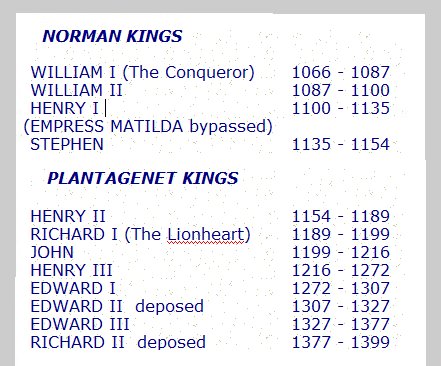 |
Henry II's successor was his son Richard I.
Like his father, Richard was 99% French. He
was born to French parents and was raised in France. We remember that King Richard the Lionheart spent
all of six months in England out of ten years of his reign.
When he wasn't off Crusading or being ransomed, he spent the
bulk of his time in France trying to extend his French
holdings. In other words, one of the most famous kings
in English history was 95% French and 1% English.
Sorry to say, Richard was a
bust and so was John, 'the worst king in English
history'. Henry III, John's son, wasn't
much better.
Edward I, also known as Edward
Longshanks, was perhaps the most successful of the
medieval monarchs. His reign marked a high point of
cooperation between crown and community.
However, we remember Edward the best as the villain
of Braveheart, the tragic movie about
Scotland's William Wallace.
Edward II was a waste of time.
Edward was a weak and incompetent king who spent
most of his time with his gay lovers. However,
he did marry and produced four children. The
eldest son, Edward III, would go down in history.
Edward III was a significant king in
English history. By my count, Edward was responsible for 150 years of war, 16 children,
and untold amounts of misery.
|
|
|
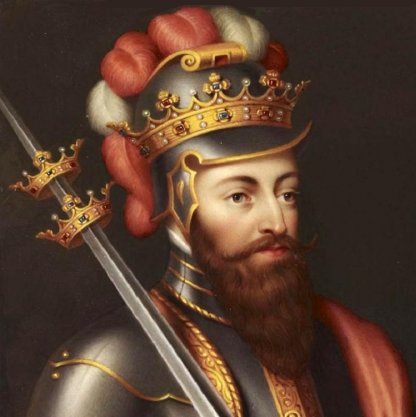 |
Edward III
Edward III ruled for 50 years,
(1327-1377), one of the longest reigns of any
European monarch. The sixth English King after
the renowned Henry II,
Edward was at heart a warrior. Edward III transformed
the Kingdom of England into one of the most
formidable military powers in Europe. His long
reign of fifty years was the second longest in
medieval England. Edward oversaw vital
developments in legislation and government, in
particular the evolution of the English parliament
Edward III was crowned at age fourteen after his weird
father was deposed by his mother, Isabella of
France, and her lover Roger Mortimer. At age
seventeen, Edward led a successful coup against
Mortimer, the de facto ruler of the country, and
began his personal reign. After a successful
campaign in Scotland, he turned his attention to France.
Edward declared himself rightful heir to the French throne
in 1337.
However, when his claim was denied,
he decided to attack France and press his claim. This started
he Hundred Years' War.
Edward's claim on the French throne was based on his descent
from King Philip IV of France, through his French mother
Isabella. His marriage to French princess Philippa
further reinforced his claim.
They always say make love, not war.
Well, Edward did both. Philippa and Edward had
thirteen children, including five sons who lived into
adulthood. The rivalry of those numerous descendants
would one day bring about the long-running and bloody
dynastic wars known as the War of the Roses.
|
As it turns out, Edward had a famous
mistress. Alice Perrers (1348–1400)
was a royal mistress whose lover and patron
was King Edward III of England. She met him
originally in her capacity as a
lady-in-waiting to Edward's consort,
Philippa of Hainault. Alice Perrers was despised
by many and was accused of taking advantage
of the far older king with her opportunistic
character, youth,
and beauty. Meanwhile, this mistress went on to become
the wealthiest woman in the land.
As we shall see, History is just as
fascinated by the women surrounding the
Kings as the Kings themselves. Anne
O'Brien is a former history teacher in
England who turned to historical fiction.
Let's see what she has to say about Alice
Perrers:
One marriage. Three
people. Proud king. Loving wife. Infamous
mistress. 1362.
Philippa of Hainault selects a young orphan
from a convent. Alice Perrers, a girl born
with nothing but ambition. The Queen has a
role waiting for her at court.
‘I have lifted you from nothing Alice. Now
you repay me.’ Led down the corridors of the
royal palace, the young virgin is secretly
delivered to King Edward III – to perform
the wifely duties of which ailing Philippa
is no longer capable. Power has a price, and
Alice Perrers will pay it. Mistress to the
King. Confidante of the Queen. Whore to the
court.
Her fate is double edged; loved by the
majesties, ostracized by her peers. Alice
must balance her future with care as her
star begins to rise – the despised concubine
is not untouchable. Politics and pillow talk
are dangerous bedfellows.
The fading great King wants her in his bed.
Her enemies want her banished. One mistake
and Alice will face a threat worse than any
malicious whispers of the past.
|
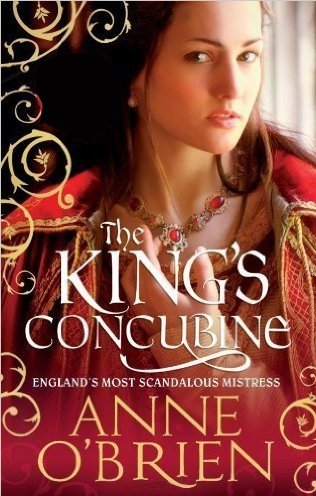 |
After his wife Philippa died, Edward had three
illegitimate children by his mistress Alice Perrers.
This brings our total to at least 16 children.
There might be more, but who has the patience? I found a website that drew a very unusual
statement
about Edward:
Conclusion: there is an extremely
high probability that a modern English person with
predominantly English ancestry descends from Edward III,
at a very minimum over 99%, and more likely very close
to 100%. The number of descendants of Edward III must
therefore include nearly all of the population of
England, and probably much of the populations of the
rest of the UK and Eire, as well as many millions in the
USA, former British colonies and Europe, so 100 million
seems a conservative estimate. Documenting one's own
descent from Edward III is, however, another matter!
There are two other footnotes to the
reign of Edward III.
First, England lost 33% of its population
due to
the Black Plague.
Second, France lost 33% of its
population to Edward's son, the infamous Black
Prince. No, France didn't really lose that
many, but it sure seemed that way.
|
The
Lineage of Edward III
|
I have
discovered the hard way that any American who
undertakes the task of sorting out English genealogy and
ancestry is an idiot. There are some
remarkable stories to be told, but unless I explain
the complicated politics, the upcoming stories will
not make much sense. Therefore, after much
frustration, I have concluded that at least a
superficial understanding of what King Edward III
did would help
explain the complex story behind the remarkable
events soon to unfold.
All four
of Edward III's sons contributed directly to English
history.
•
Edward III named John of
Gaunt, one of his sons, to become the Duke
of Lancaster.
•
Edward III named Edmund,
another other son, to become the Duke of
York.
•
Edward III had yet another
son, Lionel, whose descendent Richard,
Duke of York, would play a key role in
English history.
•
Edward III's son Edward,
also known as the Black Prince, would see his
son Richard II succeed Edward III as king.
Now that Edward III's four
boys have split off into different Houses, both
Houses had an equal right to promote one of their
members to the English throne. This splitting
would lead to brutal competition starting three
generations down the line.
|
| |
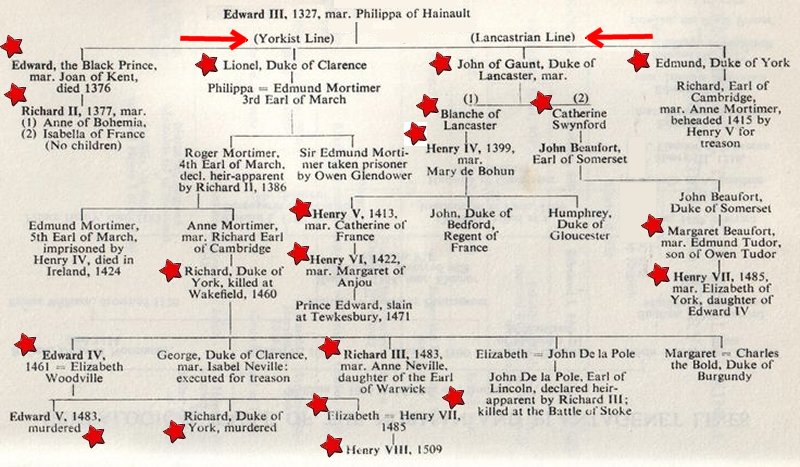 |
|
| |
|
Edward, The Black Prince
|
| |
The most hated man
in France was the Black Prince. Sorry to say, but the French
got the worst of it during the Hundred
Year's War because all the battles took place
on French soil. The Black Prince was quite a
warrior.
Like father, like
son.
Although
the Black Prince was the
eldest son of King Edward III and Philippa of Hainault,
Edward of Woodstock (1330 –1376)
never became
king. He died one year before his father's death
after fighting a prolonged ten-year battle with a
mysterious, debilitating disease.
Due to his premature death, the throne passed instead to his
son Richard II, a minor, upon the death of the Black
Prince's father Edward III.
Edward of Woodstock was an exceptional military leader. His victories over the
French at the Battle of Crécy and the Battle of Poitiers
against superior numbers during the Hundred Years War
made him very popular in
England.
Unfortunately, Edward was
not a man of mercy. In fact, he was the
Black Prince of Destruction
who laid
neverending waste to France during the Hundred Years War.
Although this was
considered the Age of Chivalry, Edward never got the email.
Edward had a well-deserved reputation for
cruelty. He earned his title based on his habit of burning
the fields of his French enemies, laying waste to the towns
that he conquered, and executing thousands
of
helpless, unarmed French prisoners after his
battles.
He was despised by the French and admired by the
English. Whatever your point of view, there can be no doubt
that Edward was a brute. Hence
the name 'Black
Prince'. The only favor Edward
ever did the French was to die young, thereby
putting one of England's worst rulers on the throne.
|
 |
|
| |
John of Gaunt,
House of Lancaster
#1 and House of Lancaster #2
|
Good old
King Edward III... remember him?
Edward III
was the king who started that awful Hundred Years
War and also found time to reproduce at a prolific
rate.
Edward's third male child by his wife Philippa was known as John of Gaunt.
John of Gaunt founded not one,
but two major wings on the House of Lancaster
family tree.
One wing
was
founded with Blanche of Lancaster, his first wife.
The second wing was founded with Katherine Swynford,
his mistress of 30 years.
Both
women were quite remarkable.
|
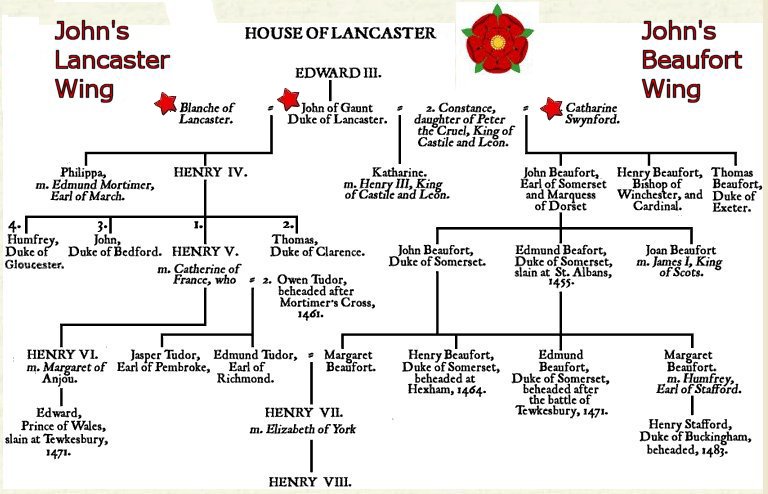 |
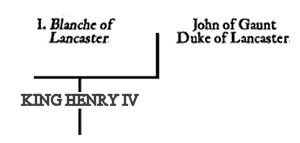 |
John of Gaunt and
Blanche of
Lancaster
King
Edward noticed that Blanche of Lancaster,
daughter of Henry Grosmont, head of the original
wing of Lancaster, was not only filthy rich, she was
available.
So John
of Gaunt married Blanche of Lancaster in 1359.
She was 14 at the time. Since John was a
Plantagenet and the Lancasters were also
Plantagenets, I suppose they were cousins of a sort.
|
Blanche
possessed considerable land holdings. After
John
combined the estates King Edward gave him plus Blanche's
estate, John of Gaunt was now the richest man in
England after his father King Edward III.
Blanche
was remarkable... marrying at age 14, she had seven
children in eight years. Then suddenly she
took ill from complications following the birth of
her seventh child. Blanche died in 1368 at age
22.
One of
Blanche's children was Henry Bolingbroke, destined
to become the first Lancaster King, Henry IV.
After
Blanche's death, John had pretensions of ruling a
Kingdom. He was too far removed from the Crown
of England to expect advancement, so he married Constance of Castille,
Spain, in 1371. John
of Gaunt huffed and puffed for the next 23 years or
so, but the Spanish Kingdom gig never worked out.
Constance died in 1394 still married to John. It would be
interesting to know what Constance thought of her
marriage. However,
for the sake of Brevity, I will do my best to look
away. On the other hand, John's next love
affair was more than I could resist.
|
| |
|
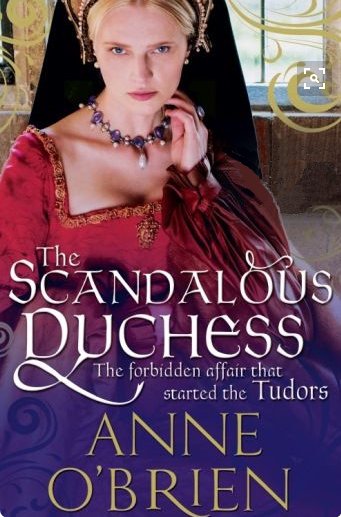 |
Katherine Swynford,
The Scandalous Duchess
|
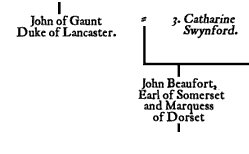 |
Widow Lady Katherine
Swynford presents herself for a role in the
household of merciless royal prince John of Gaunt,
Duke of Lancaster, hoping to end her destitution.
But the Duke’s scandalous
proposition leaves her life of pious integrity
reeling... Seduced by the glare of
royal adoration, Katherine becomes John’s mistress.
She will leave behind
everything she has stood for to play second fiddle
to his young wife and ruthless ambition.
She will live in the
shadows of the most powerful man in England in the
hope of a love greater than propriety.
But soon the court whispers
– whore, harlot, vile temptress – reach the ears of
not just John’s bride but his most dangerous
political enemies.
As the Plantagenet prince
is accused of bringing England to its knees, who
better to blame than shameless she-devil Katherine
Swynford?
Dragged from the shadows,
Katherine must answer for her sins.
|
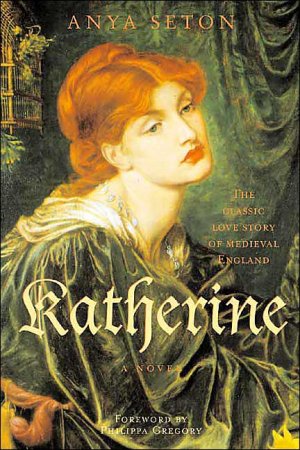 |
Katherine Swynford was a commoner who came to the
household of John of Gaunt as governess to his
daughters Philippa of Lancaster and Elizabeth of
Lancaster.
After
the death of his wife Blanche, John made Katherine
Swynford his mistress. She bore him four
children in the years between 1371 and 1379.
They were supposedly born in John’s castle in
Champagne, France, and given the name of the castle
as their surname; Beaufort. However it seems
just as likely that they were named after the
lordship of Beaufort, which had one belonged to
Gaunt and to which he still laid claim.
Katherine remained John's mistress for 30 years
during his marriage to Constance. How she put
up with this situation is anyone's guess.
That
said, for you hopeless romantics, I will share one
tidbit... John finally married Katherine in 1396 and made
her the Duchess of Lancaster. He then asked
King Richard II to legitimize their four children.
The
House of Beaufort had begun.
It is interesting to note that a descendant of
Katherine's previously illegitimate son John
Beaufort would on day produce a King
of England.
|
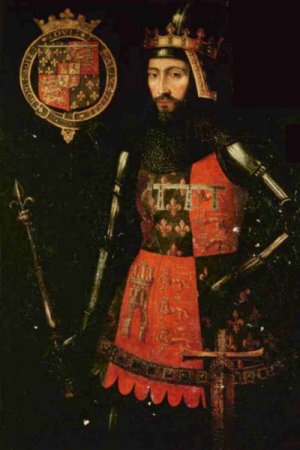 |
|
| |
Richard II
Richard
II followed Edward III.
Richard was
not the son of Edward III, but rather the
son of the Black Prince. Richard II
was 10 when his controversial father died of a
mysterious ailment in 1377. No doubt the
French were thrilled to see this brutal man bite the dust.
|
 |
| |
In a move that would have far-reaching
consequences, Richard II bypassed three
able-bodied sons for succession to the
crown.
By the laws of primogeniture, this ten year
old boy, Richard II, succeeded to the throne
ahead of Edward's three surviving sons
This skipping of an entire generation left
lingering claims to the throne among their
various offspring, particularly among the
Lancasters, descended from Edwards third
son, John of Gaunt, and among the Yorks,
descended from the second son Lionel and the
fourth son Edmund.
|
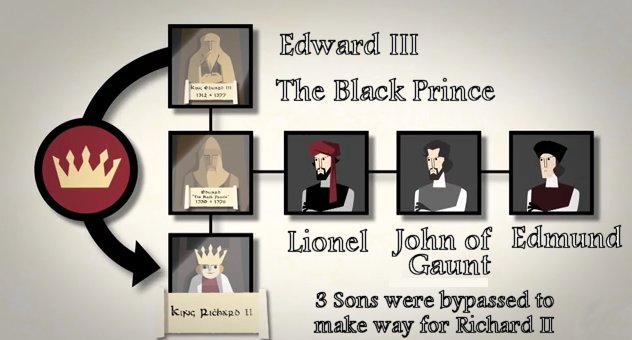 |
| |
|
| |
|
Richard spent the majority of his early years
wrestling to keep control of one peasant revolt
after another. We haven't spoken much about
the English peasants, but they had a rough life.
At that time, half of England was owned by a network
of 200 related Anglo-Norman families (and the rest
was owned by the crown and the church). In the
centuries since the Norman Conquest, followers of
William the Conqueror and his successors married
noble Anglo-Saxon women to form a new
French-speaking aristocracy. Their wealth and even
their food were supplied by the toil of their native
Anglo-Saxon serfs, few of whom rose to greatness.
Traces
of the racial and class divisions of this time still
exist in modern English. For the live animals
herded, tended, milked and slaughtered by the
natives we still use their Anglo-Saxon names like
sheep, calf, cow and swine. For the cooked meat on
the table, which only the French-speaking overlords
were allowed to eat, we use the French equivalents:
mutton, veal, beef and pork.
More cruelly still, the poor natives were not
allowed to hunt wild animals for food in the
forests, or even gather winter fuel there. Some
modern place names tell this story: Cannock
Chase in Staffordshire is so named because ‘chase’
comes from the French word ‘chasse’ meaning ‘hunt’.
It was originally enclosed land, where the game was
reserved for the exclusive pleasure of the
overlords. A peasant defying the “forest laws
for the protection of vert and venison” risked a
long term in prison – or even death. The
legend of Robin Hood was so enticing simply because
this folk hero brought forest justice to a land that
knew little justice for the lower classes. So
when an idiot like Richard Lionheart goes and gets
kidnapped, the smart thing to do would have been to
say keep him. Instead the peasants were forced
to fork over 25% of their earnings to pay Richard's
ransom. The English peasants were not a happy
people. This probably explains why they were
eager to go plunder their counterparts in France
during the Hundred Year's War.
When Richard was 36, he tried
to put an end to the Hundred Years War by
negotiating a permanent peace with France. A
proposal put forward in 1393 would have greatly
expanded the territory of Aquitaine possessed by the
English crown. However, the plan failed because it
included a requirement that the English king pay
homage to the King of France – a condition that
proved unacceptable to the English public. Instead,
in 1396, a truce was agreed to, a truce which was
supposed to last 28
years. It lasted 19 years.
Richard II was extravagant,
unjust and faithless. The sudden death of his wife
Anne of Bohemia left Richard
mentally unhinged.
He turned vindictive in 1397 and began taking cruel revenge on political
opponents, many of whom were executed or exiled.
The next two years have been described by historians
as Richard's Reign of Tyranny.
| |
|
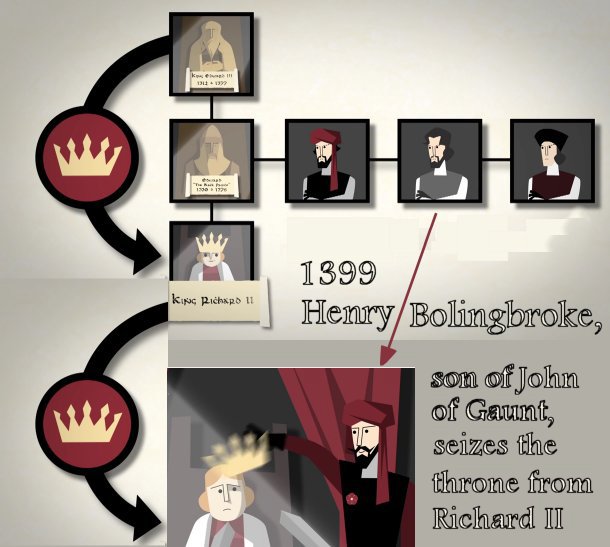 |
Henry IV
Unfortunately for
Richard II, one of the men he picked on had the
means to fight back. In 1399, Richard
II disinherited Henry Bolingbroke.
Determined to regain his estate, Henry,
returned
from exile and deposed Richard.
Richard picked on the
wrong enemy. Henry was not only his
direct cousin, he was the son of John of
Gaunt, the second wealthiest man in the
kingdom. It was a family feud,
Plantagenet versus Plantagenet.
John of
Gaunt's eldest son and heir, Henry Bolingbroke, Duke
of Hereford, had been exiled for ten years by King
Richard II in 1398 as resolution to a dispute
between Henry and Thomas de Mowbray, Duke of
Norfolk.
When John of Gaunt died in 1399, his
estates and titles were declared forfeit to the
crown. King Richard II saw fit to do this
because he had named Henry a traitor and changed his
sentence to exile for life. Henry Bolingbroke
returned from exile to reclaim his inheritance and
depose Richard.
Henry
invaded England in June 1399 with a small force that
quickly grew in numbers due to Richard II's
unpopularity. Claiming initially that his only
goal was to reclaim his lost estate, it soon became
clear that Henry intended to claim the throne for
himself.
|
|
| |
|
Meeting
little resistance, Bolingbroke deposed Richard and
had himself crowned as King Henry IV (1399-1413).
Richard
II died in captivity in February 1400; he is thought
to have been starved to death
in Pontefract Castle.
From
what the history books say, he deserved it.
Henry's
ascension to the throne marked a changing of the
guard. His father, John of Gaunt, was the
third son of Edward III. John of Gaunt
enjoyed a position of considerable political
influence during much of the reign of Henry's cousin
Richard II. Henry's mother Blanche was heiress
to the considerable Lancaster estates. Thus
Henry IV became the first King of England from the
Lancaster branch of the Plantagenets.
Significantly, Henry was the first King of England since the
Norman Conquest whose mother tongue was English
rather than French.
Although
England finally had an English king, Henry
did not enjoy a particularly auspicious reign. He
spent most of his 13 years defending himself against
plots, rebellions and assassination attempts.
Henry died exhausted, probably of leprosy, at the
age of 45.
Although
Henry IV did not accomplish much on his own other
than fend off all the attackers, his son Henry V
would become one of England's most famous rulers.
|
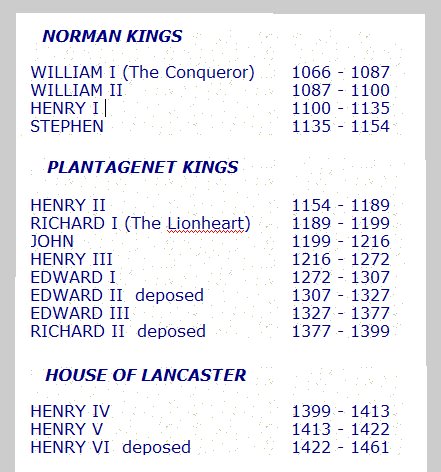 |
| |
|
Problem of
Succession
Henry IV had stepped out of line.
Literally.
The heir of the royal estate according to
common law was Edmund Mortimer,
5th Earl of March, who descended from the
daughter of Edward III's third son,
Lionel of Antwerp.
Basically, Edmund Mortimer had been cheated
out of the throne.
Bolingbroke's father, John of Gaunt, was
Edward's fourth son. In other
works, Bolingbroke had broken the line of
succession and opened a can of worms.
Henry thus had to overcome the superior
claim of the Mortimers in order to maintain
his inheritance. At the time, the
problem was solved by everyone looking the
other way and coming up with legal
goobledygook to explain why it was okay
after all.
|
 |
| |
|
Basically, Henry Bolingbroke had opened a
can of worms. If it was okay for him
to 'step out of line', then it was okay for
all his royal cousins to do the same at a
later date.
This difficulty compounded when the Mortimer
claim was merged with the Yorkist claim in
the person of Richard Plantagenet,
Duke of York. The Duke of York
was the heir-general of Edward III, and the
heir presumptive (due to agnatic descent) of
Henry's grandson Henry VI. We will
come back to this shortly.
|
|
| |
|
Henry V
|
|
| |
|
Henry V
was extremely pious and serious. He was also a
skillful soldier. Henry honed his military
skills by helping to put down the many rebellions
launched against his father. Henry was quite a
fighter. The boy had already been knighted
when aged just 12.
Ascending to the throne in 1413, Henry pleased his
nobles by renewing the Hundred Year's War with
France in 1415. More than likely, Henry V
spotted an opening. France was in complete
disorder. The French king, Charles VI of
France, was prone to mental illness; at times he
thought he was made of glass. Furthermore, his
eldest surviving son was an unpromising prospect.
Seeing that France was leaderless, Henry V decided
to strike.
Henry V
didn't need an excuse. He simply revived the
old dynastic claim to the throne of France that had
been earlier pursued by Edward III of England.
Henry's
campaign was at best a borderline success. He
laid siege to the port of Harfleur, modern day Le
Havre. During the long siege, Henry lost 33%
of his forces to dysentery. Ravaged by
disease, Henry decided to fold his tents and head
back to England.
Meanwhile, the French had other ideas.
|
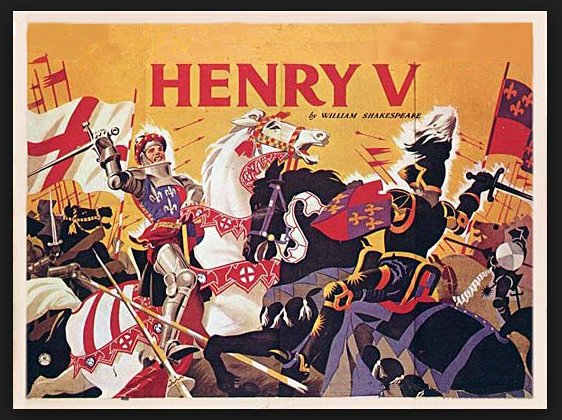 |
| |
|
Agincourt
|
| |
|
So how about the Archers?
Many Englishmen were known by their occupations in Old England. Here
is a simple list of occupations that turned into easily
recognizable names:
Archer, Baker, Brewer, Butcher, Butler, Carpenter, Carter,
Clark, Cooper, Cook, Dyer, Farmer, Faulkner, Field, Fisher,
Fuller, Gardener, Glover, Head, Hunt, Hunter, Judge, Knight,
Mason, Miller, Page, Parker, Potter, Sawyer, Slater, Smith,
Taylor, Thatcher, Turner, Weaver, Wood, Wright.
These names are all gentle
reminders that many Americans can trace their lineage back
to England and its surrounding areas.
Many of the English got
their names from their occupations. As one might gather,
since I am an 'Archer', my family traces its roots
back to the glory days of the Archers during the 'Hundred
Years War' between England and France.
Of course, I am very proud
of my Archer name. The Archers not only won the famous
battle of Agincourt on French soil in 1415,
they did so on my birthday!
|
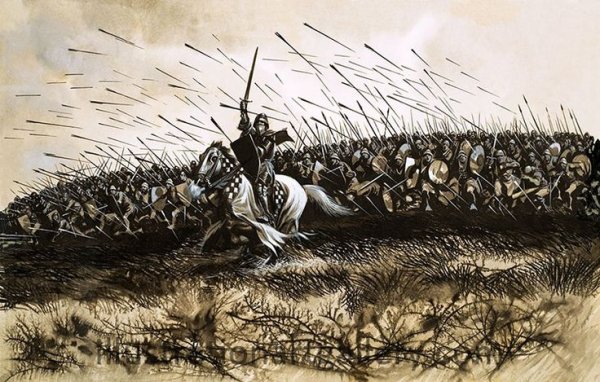 |
| |
|
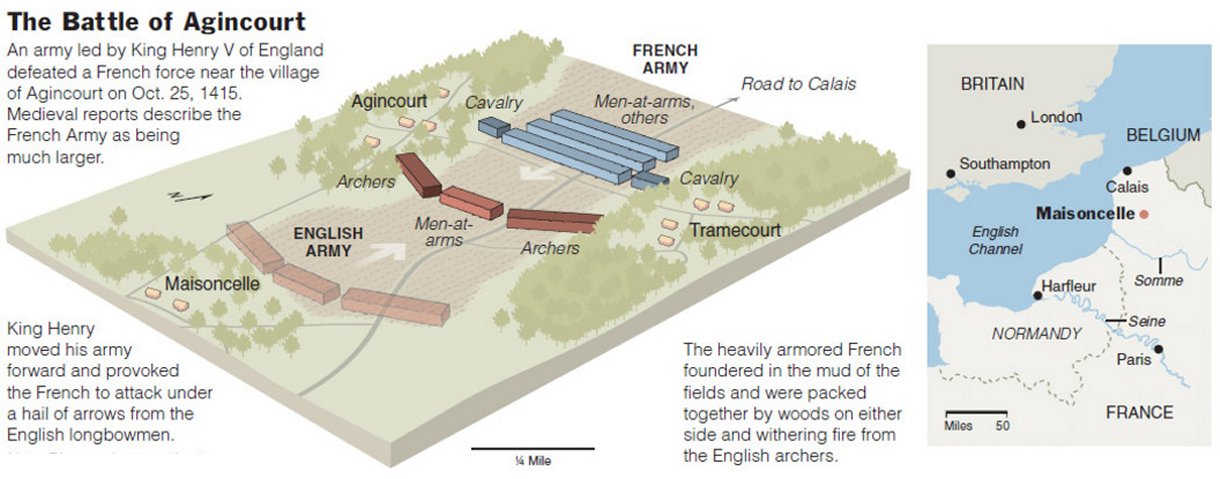
The 1415 Battle of Agincourt was the most
famous battle during the long series of warfare between
England and France known as the Hundred Years War.
What makes the battle so remarkable was that
the army of Henry V
was apparently outnumbered 5 to 1.
But somehow the English managed to win.
Not only that, Henry was said to have only lost about 400
men.
Many accounts suggest it was 30,000 French
against 6,000 English. So how on earth did the
English beat an army five times larger
and incur so few losses in the process?
Well, the Mystics will say
Fate and the Realistics will say the English benefitted from
several factors, one being considerable luck.
Seriously, the French had no business losing this
battle. They didn't even have to fight!! They could have won just by sitting still and forcing the
outnumbered English to do the attacking... in which case the
larger French army would have enjoyed a serious advantage.
The English invasion of
France by King Henry V was cut short by a serious outbreak
of dysentery. Henry had already lost one-third
of his army to disease and was limping to Calais, an English
Channel port from which his pitiful army could sail home.
The army was low on provisions and exhausted from a previous
battle at Harfleur (modern day Le Havre).
The French pulled an
impressive trick on the English. In order to
reach Calais, the English had to cross the Somme River in
northern France. Heading
north along the French coastline, the English were met by a
small French army on the northern side of the Somme River.
The English army moved inland in search of a safe spot to
cross the river swollen by seasonal rains. The small French army shadowed the
English every step of the way to prevent it from crossing.
This maneuver forced the English to detour nearly one
hundred miles inland before it could find a place to cross.
The detour changed a 120 mile trip to Calais into a 260 mile
trip. In the process, the detour delayed the English reaching Calais by two
weeks.
During this two week delay,
the French used the extra time to assemble the largest army in
history. The word spread throughout France... head to
Calais and take place in the greatest
English arse kicking
in French history. Everyone wanted a piece of the action.
The English were just 30
miles from Calais when it crossed a hill. Surprise! There
in front of them stood an army of 30,000 men. This army
stretched as far as the eye could see.
Devastated from dysentery,
low on provisions, exhausted after a three-week march, the English army had a huge problem... the French
were in no hurry to fight. All the French had to do was sit
there for a week, drink wine and let the English starve to death.
| |
|
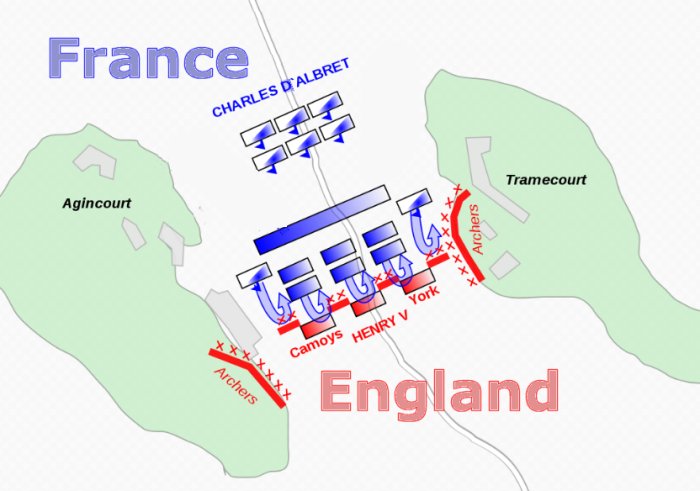 |
King Henry V had no choice.
He had to attack.
So how did the English
win? Rain, vain, terrain.
The
overnight 'rain' was a
huge
help. It turned the battlefield into a mud
pit. The field
had recently been ploughed and the upturned dirt became a
quagmire. Now the heavily armored French were at a
considerable disadvantage because their
heavy armor made them immobile
in the muck.
The 'terrain' was a
gentle slope with the English on the high ground. On either
side of the field were thick forests. This helped the
English because now the French were unable to flank them.
In addition, the vast majority of
the French forces were stuck at the back and unable
to join the fight.
Henry
used a narrow front channeled by woodland to give
his heavily outnumbered force a chance.
All the English had to do was keep the front line of the
French at bay while the countless thousands of Frenchmen
behind the lines twiddled their thumbs.
Even better, the English
archers went into the woods where they could attack the
French using the cover of the trees.
|
| |
|
As for 'vain', the English left themselves completely vulnerable
for an entire hour, but
the French just sat and
watched. They were so
certain of victory that they passed
on this delicious window of opportunity.
Every archer was told to
carry a giant wooden stake with a point
on the end to plant in the ground.
These stakes were to serve as a
defensive barrier to slow down the
French horses.
The English were in a
terrible position. They had no choice but to attack or
starve. The problem was that the French army was out of
arrow range. In order to
fight, first they had to move the archers
closer. Henry's decision to
move forward meant the archers had dig up their stakes, move
them 200 yards forward, then re-plant them.
Surely the French were amused.
It was a preposterous sight to see the English dig
up their stakes, move them forward, and then replant
them. The entire time, the
archers were vulnerable to attack by the mighty
French cavalry. The French cavalry force could
have devastated the English line if it had attacked
while they moved their stakes.
Instead they
did nothing while the English
came closer.
|
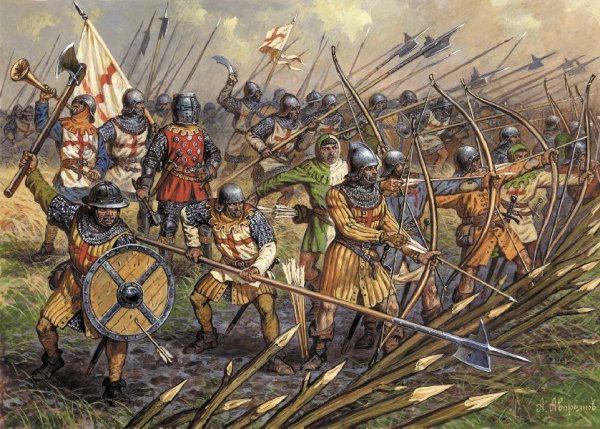 |
| |
|
French arrogance cost them a surefire triumph.
When Henry originally
decided to attack France, he had been right about
one thing... the French seriously lacked leadership.
Their generals did not seem to have a clue on this
day.
Now that the English archers
were within striking distance, they let loose an initial volley
of arrows. The initial deluge of arrows was so thick
legend has it that the sun disappeared.
This enraged the
French who decided to charge. That was exactly what Henry
wanted them to do. Now the English could fight a defensive
battle. The first line of French knights
attacked only to be repulsed by the English
longbowmen.
The French armor was sufficient to protect many of
the French from the arrows, but the horses were another
story. Every time a horse went down, so did the man
riding it. Once
a knight hit the dirt with
his heavy
armor, he got stuck in the thick mud.
The dead
horses now served as a
defensive wall for the
English, but the French showed great determination
by trudging forward.
|
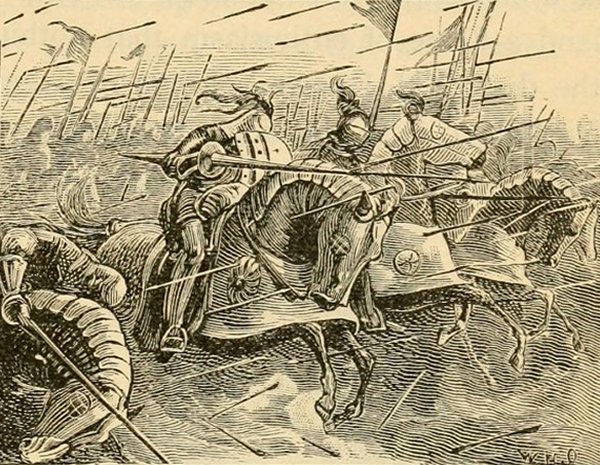 |
| |
|
Several days of torrential
rains had turned the recently tilled ground at
Agincourt into a soggy morass. Already weighed down
by their heavy metal armor, the French knights were
forced to slip and slide their way toward the
English line, often sinking down to their knees in
mud. The French attack
slowed to a crawl
and became a prelude to a slaughter in the mud.
The
French had become sitting ducks.
Many
died right where they fell off their horse.
They were caught in a human crush and were either
trampled or suffocated to death after they fell into
the mire. Can you imagine? The water was
so deep in places that a fallen Frenchman might get
his visor stuck underwater and drown.
Those lucky enough to survive
the slog arrived at the enemy position exhausted and
disorganized. Since most of the English weren’t
wearing armor, they were able to pounce on the weary
Frenchmen and inflict devastating casualties.
|
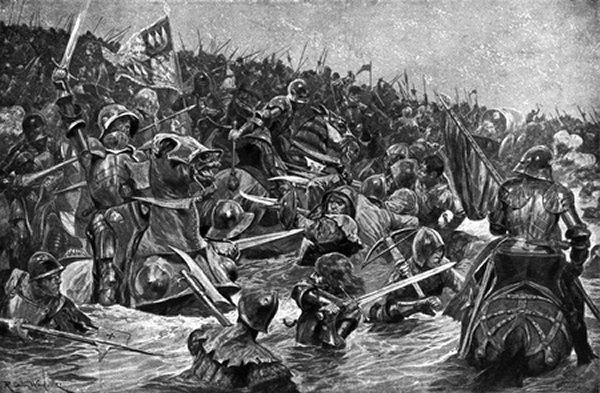 |
| |
|
The English archers put down their
bows and used their poleaxes to kill the immobilized French
knights who were stuck in the mud thanks
to to their heavy armor. The more mobile English
simply raised the visors of their enemy and stuck a knife in
their eye.
The
French viewed the day with mounting horror.
After seeing their first line repulsed, the
second line of French now attacked.
They too were
beaten back, their charge bogged down by the mud on
the field and the defensive wall
of dead Frenchmen.
Late in
the day, a third
line moved to engage but lost heart
as they
crossed the field covered with French dead.
Seeing the futility, they
retreated without giving
fight.
The
battle was over.
|
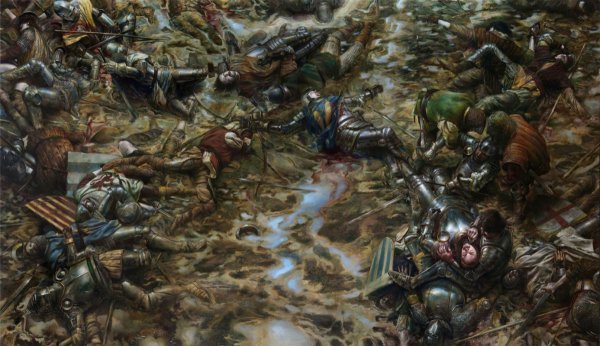 |
| |
|
One of
the remarkable features of Agincourt was Henry V
fighting front and center throughout the battle.
The man possessed considerable courage.
It has
been written that a band of 18 French knights under
the banner of the Lord of Croy met before the battle
and vowed to kill Henry V and knock his crown from
his head.
Their
efforts were unsuccessful. One
member did manage to strike Henry’s helmeted head
with an axe and chip off a piece of his crown, but
that was only blow landed all day.
The
entire group of 18 died in their effort.
The
blow wasn’t the only brush with death the King had
while fighting on the front lines. When his
younger brother Humphrey was wounded in the groin,
Henry is said to have kept a group of French
attackers at bay until Humphrey could be carried to
safety.
Richard
the Lionheart may have had the reputation, but Henry
V was the real deal. The word 'hero' was
coined for guys like him.
Henry was
left with control of the battlefield and a decisive
victory.
The resulting massacre left
between 6,000 and 10,000 French troops dead. The English
only lost a few hundred men.
|
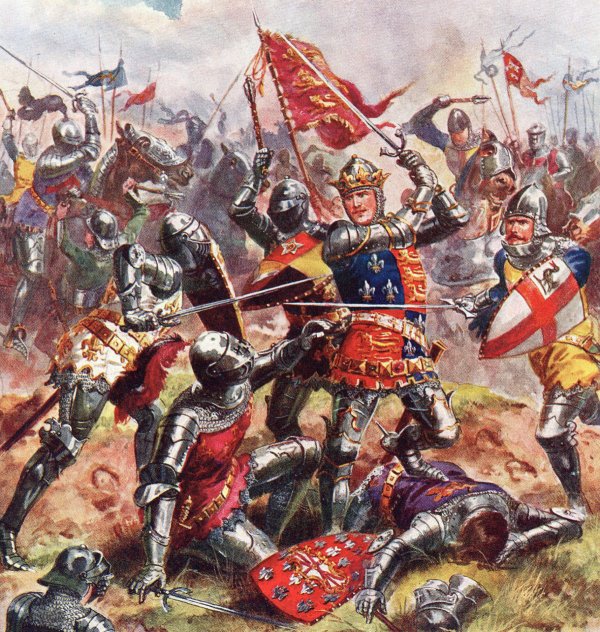 |
| |
|
In 1599
Shakespeare wrote Henry V, including
the immortal St. Crispin’s
Day “band of brothers” speech by which the
king best remembered.
“From this day to the ending of the world,
But we in it shall be remembered-
We few, we happy few, we band of brothers;
For he today that sheds his blood with me
Shall be my brother; be he ne’er so vile,
This day shall gentle his condition;
And gentlemen in England now-a-bed
Shall think themselves accurs’d they were not
here,
And hold their manhoods cheap whiles any speaks
That fought with us upon Saint Crispin’s day.”
This battle is still
considered one of England's finest hours.
|
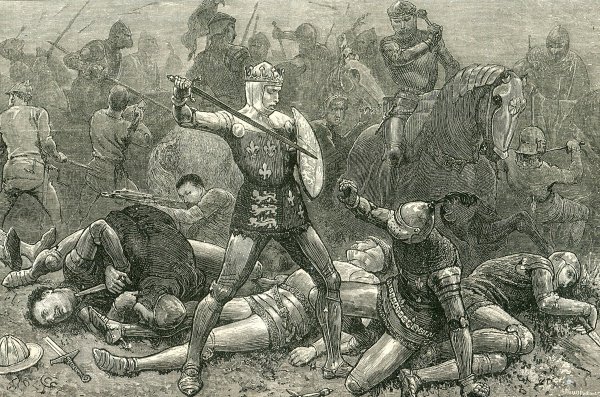 |
|
|